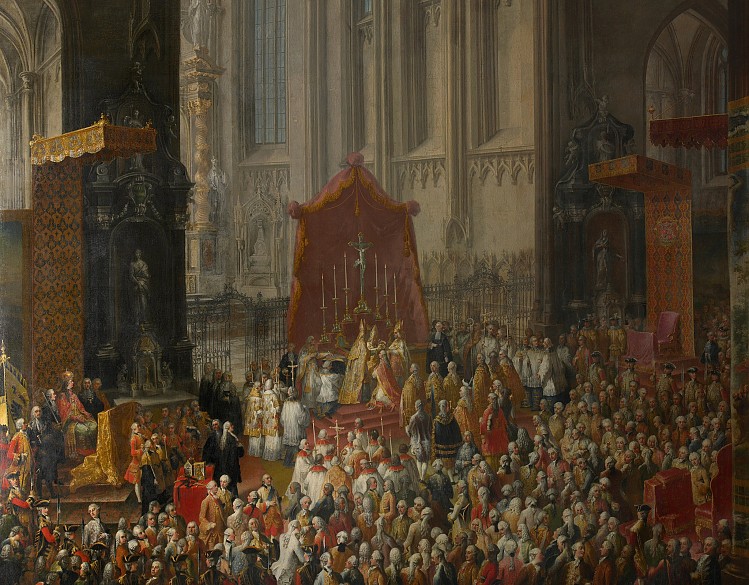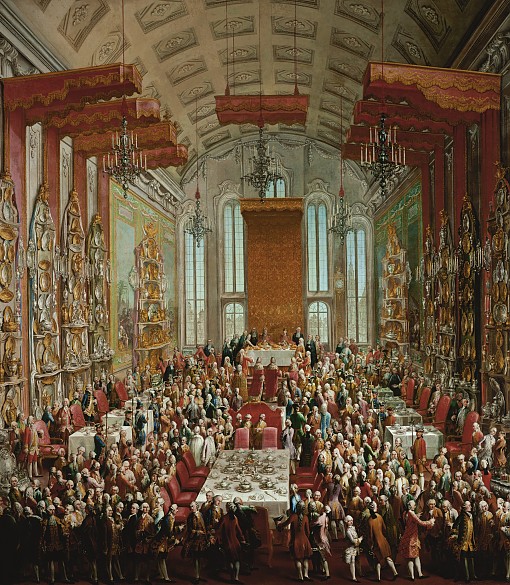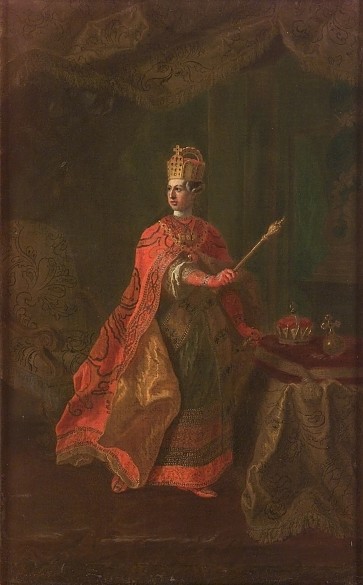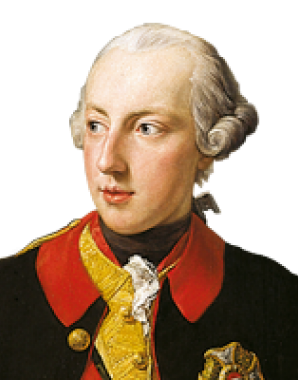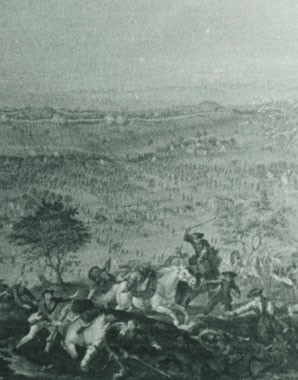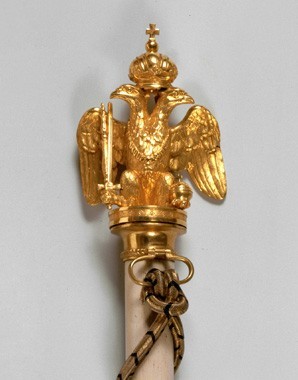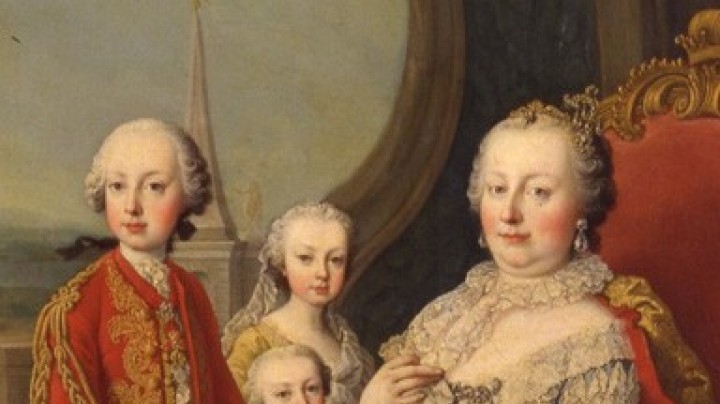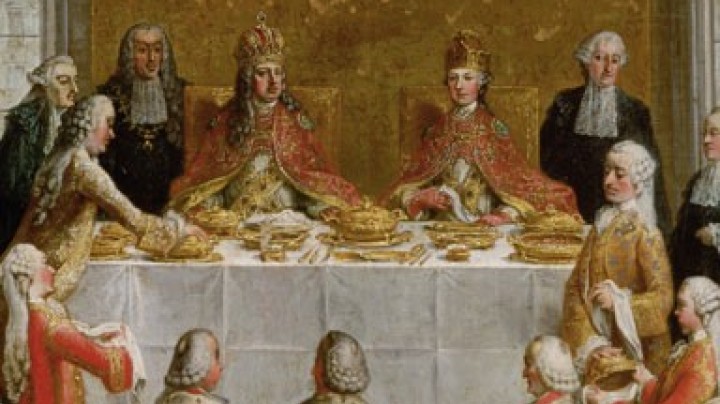Old times, new times: the coronation of Joseph II in Frankfurt
In 1764, Frankfurt am Main, where coronations were traditionally held for rulers of the Holy Roman Empire, became the scene of a ‘half-majestic, half-ghostlike world theatre’, according to eyewitness Johann Wolfgang von Goethe. The ritual which unfolded around the election of Habsburg Crown Prince Joseph was a magnificent spectacle from a world in decline.
from J.W. Goethe, Dichtung und WahrheitThe young king in his monstrous articles of clothing, with the crown jewels of Charlemagne, dragged himself around as if in a costume of disguise, such that he himself … was unable to hold back a smile.
The Holy Roman Empire, the future ruler of which had just been chosen by the electors, was by now no more than a primitive vestige, a colourful conglomeration of small and medium-sized states crushed between the major powers. Following the end of the Seven Years’ War, the balance of power within Europe had fundamentally changed; the Old Empire was politically obsolete, and retained a presence only in symbolic form.
Yet on this occasion too, the House of Habsburg attached a great deal of importance to asserting the imperial claim to the imperial dignity, nurtured over generations. While Emperor Franz I Stephan of Lorraine was alive and still in power, a lengthy diplomatic overture had already ensured that all the electors would elect Joseph, including arch-enemy Frederick II of Prussia, Elector of Brandenburg.
Archaic rituals were used to demonstrate the fictitious continuity of the Old Empire from the time of its myth-enshrouded origins under Charlemagne. Following a procession into the city, the coronation was then held, adhering to every minute detail of traditional formalities, and using medieval insignia.
There then followed the coronation banquet in the Frankfurt City Hall, the Römer, where the leading figures of the Empire were supposed to perform their traditional ‘arch-offices’, i.e., symbolically serve the newly-crowned ruler at table. In order to avoid such personal submission before the ruler, however, most princes of the Empire were conspicuous by their absence, and their places at table remained empty, thereby emphasising the meaningless formulaic nature of the ritual in all its absurdity.
The main protagonist, Joseph II, himself influenced by the rational ideals of the Enlightenment, evidently felt himself completely out of place amid this spectacle based entirely on long-established rites and medieval forms; in a letter to Maria Theresa, he described the whole affair as ‘une vraie comédie’.
